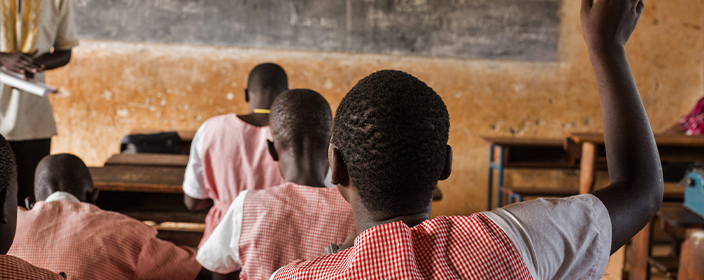


Read our Inclusive Education paper – ‘Children with disabilities now have international frameworks enshrining their right to an education’
About this resource
Education is a right for all children. It is essential to their social, emotional and intellectual development. Great progress has been made to give all children an education, yet 90% of children with disabilities in low income countries still do not receive an education. In order to rectify this, governments, international institutions and civil society organisations across the world are increasingly adopting inclusive education approaches to ensure that no child is left behind.
The right to an inclusive education is enshrined in several international agreements: Article 28 of the UN Convention on the Rights of Children (UNCRC – 1989); the Salamanca Statement on special needs education (1994); and Article 28 of the UN Convention on the Rights of Persons with Disabilities (UNCRPD – 2006) all commit the global community to ensure that: ‘persons with disabilities can access an inclusive, quality and free primary education and secondary education on an equal basis with others in the communities in which they live’.
This includes making accessibility adaptations to school buildings and teaching methods that consider the needs of children with a range of needs. The most recent milestone for disability rights is their inclusion in the UN Sustainable Development Goals (SDGs). For the first time, people with disabilities have been included in the global goals (after being excluded from the Millennium Development Goals) with SDG 4 specifically outlining the right of all children to a quality education, with specific targets and indicators for governments to deliver on and report on progress.
It has been a long process to get this far, but children with disabilities now have international frameworks enshrining their right to an education.
Please do share with your networks, and if you have any questions email us at: info@ablechildafrica.org.uk